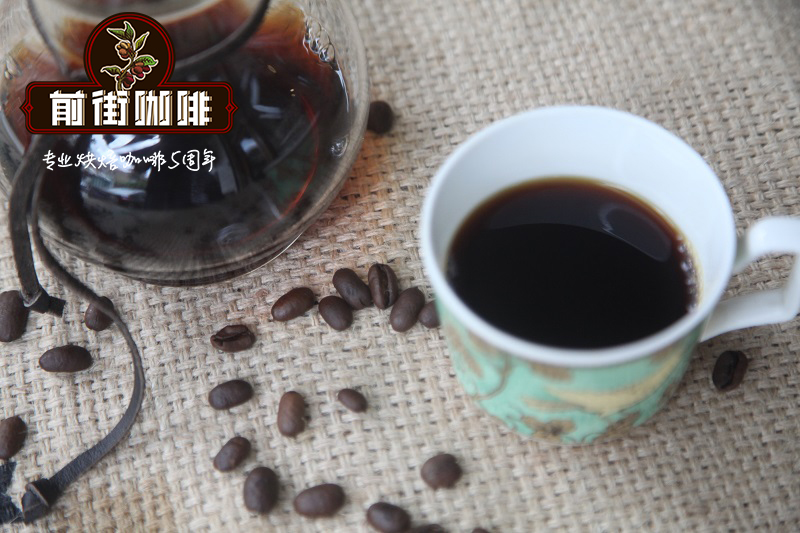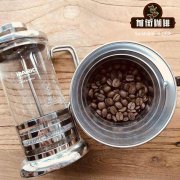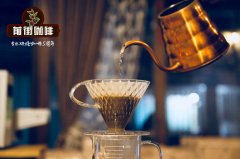Introduction of Kawa Cooperative of Moussa processing Plant in Rwanda. Is Rwanda Musasha Coffee beans good?

Professional coffee knowledge exchange more coffee bean information please follow the coffee workshop (Wechat official account cafe_style)
Rwanda is located in the heart of the interior of Africa. Its fertile mountain terrain and ancient traditional bourbon species indicate that the natural environment needed to grow high-quality coffee beans can be seen everywhere in Rwanda. Coffee was introduced to Rwanda by German missionaries in 1904 and began to flourish in 1930 because it was the only income-earning crop for rural farmers. Whether it was Arabica harvested in March-June or Robsta harvested in May-June, the government encouraged in effect ordering the production of low-quality and high-yield coffee, even though poor quality played an important role in Rwanda's economic development at that time, because it was one of the few crops that could earn cash, but as global coffee prices collapsed, it continued to promote the policy of exporting low-quality Arabica coffee. Changes are bound to be made.
The 1994 genocide claimed nearly 500000 lives and almost wiped out the knowledge and technology of coffee bean growing. at the same time, coffee prices around the world fell sharply, adding to the woes of the coffee industry in Rwanda. The coffee industry in Rwanda is now on the rise again, hoping to re-establish the infrastructure needed for the production and processing of boutique coffee beans at a steady pace, most notably the Joint enhanced Rwanda Agricultural Partnership (PEARL), which is mainly to help Rwanda rebuild agricultural institutions, production capacity and cultivate agricultural talent to help local small farms sell coffee beans directly to buyers in the boutique coffee market. Unlike neighboring Kenya, Ethiopia has a centralized auction system, but its agricultural cooperatives can buy and sell coffee directly with buyers. However, if coffee beans are to be exported from landlocked countries, they have to travel 1500 kilometers to the port of Mombasa Mombasa in Kenya or the port of Dares-Salam Dar es Salaam in Tanzania, after the exercise of the 2007 Crop of Gold' Golden Bean Competition. Rwanda Coffee then held its first C.O.E Coffee Competition in 2008, which drew more buyers' attention to the high-quality bourbon beans produced in Rwanda.
Rwanda Coffee Governor Kendkawa Cooperative Dukunde Kawa Coop. Founded in 2000, farmers' coffee is grown near the gorilla gorilla community in the mountains of north-central Rwanda, more than 1800 meters above sea level. Up to 80% of the members of the Dookeng de Kawa cooperative are women, which can be said to have helped improve the economy of many families. Government funds have helped the cooperative set up its own water washing plant, located in the nearby city of Musa, Musasa, which belongs to Gakenke, Ka Qianchi province in northern Rwanda. As a result, the Kendkawa Cooperative donates 10% of its net profit every year to help other cooperatives in the country that need to build water washing plants. In 2004, Governor Kendkawa obtained the Fair Trade Certification Fair Trade, saying that the cooperative had established a sustainable and environment-friendly coffee industry.
The number of members of the cooperative has grown from 300 at the beginning to more than 2000 now, with each member owning only about 100 coffee trees. The welfare measures of the cooperative enable all the children of the cooperative to go to school, and the members of the cooperative can also receive health and medical care. Last year, Governor Kendkawa won the Sustainable Management Award of the American Fine Coffee Association, mainly for the shade planting and native tree restoration program implemented by the cooperative. In addition to building a clean and drainage system to treat water washing process sewage, the cooperative is also working towards comprehensive organic planting, which is expected to be certified in 2014 this year. The warehouse of the cooperative is also well designed, and the coffee storage area is two feet high with wooden planks to effectively prevent the moisture from the concrete floor from condensing on the coffee bag, causing the defective flavor of the coffee.
2010 can be said to be a shining year for Dukan de Kawa, with 90.08 points for runner-up and 88.16 points for seventh place in the Zhuoyue Cup Cup of Excellence, and 86.38 points for 13th place in 2013. The high altitude of the coffee plantation slows down the ripening pace of coffee cherries, giving coffee cherries time to brew more fragrant and sweet factors, and the lower ambient temperature also allows coffee beans in the washing process to ferment more smoothly and for a longer time, making the fruit sour and bright and meticulous. Careful harvesting of ripe red cherries and subsequent removal of defective beans is also the persistence of the Dukan de Kawa Cooperative. All kinds of factors can make such a good coffee with 100% bourbon Bourbon flavor!
END
Important Notice :
前街咖啡 FrontStreet Coffee has moved to new addredd:
FrontStreet Coffee Address: 315,Donghua East Road,GuangZhou
Tel:020 38364473
- Prev

Starbucks selects Rwanda Shuli Coffee Bean Story _ Shuli Cooperative Coffee Bean brewing suggestion
Professional coffee knowledge exchange more coffee bean information Please follow the coffee workshop (Wechat official account cafe_style) when a group of female coffee farmers work closely together, today's protagonist is born: Rwanda Shuli. The Shuli Cooperative in Rwanda, formerly known as Abateraninkunga ba Sholi, in which Abateraninkunga means mutual assistance and Sholi is a township.
- Next

How much is the temperature of the hand flushing powder in Kuiye Mountain, Rwanda, better than the recommended _ Rwanda coffee hand flushing water?
Professional coffee knowledge exchange more coffee bean information please pay attention to the coffee workshop (Wechat official account cafe_style) ▼ [Rwanda Coffee-Kuiyeshan] in the baking water powder than 1:15-1685 yuan / 250g flavor structure is simple and clear. Mild and sweet lemon yellow sugar, peach and matcha are recommended to friends who like flavor. ▼ Note: freshly baked beans are too fresh for horses.
Related
- Detailed explanation of Jadeite planting Land in Panamanian Jadeite Manor introduction to the grading system of Jadeite competitive bidding, Red bid, Green bid and Rose Summer
- Story of Coffee planting in Brenka region of Costa Rica Stonehenge Manor anaerobic heavy honey treatment of flavor mouth
- What's on the barrel of Blue Mountain Coffee beans?
- Can American coffee also pull flowers? How to use hot American style to pull out a good-looking pattern?
- Can you make a cold extract with coffee beans? What is the right proportion for cold-extracted coffee formula?
- Indonesian PWN Gold Mandrine Coffee Origin Features Flavor How to Chong? Mandolin coffee is American.
- A brief introduction to the flavor characteristics of Brazilian yellow bourbon coffee beans
- What is the effect of different water quality on the flavor of cold-extracted coffee? What kind of water is best for brewing coffee?
- Why do you think of Rose Summer whenever you mention Panamanian coffee?
- Introduction to the characteristics of authentic blue mountain coffee bean producing areas? What is the CIB Coffee Authority in Jamaica?

